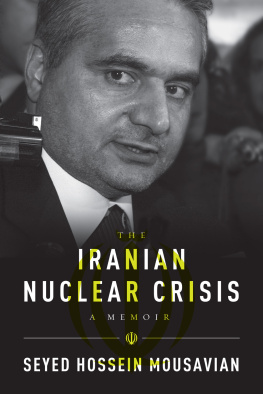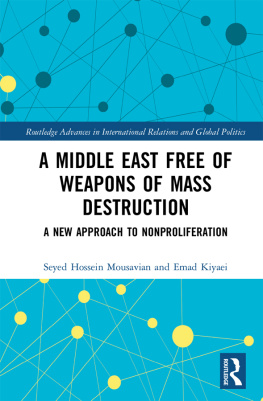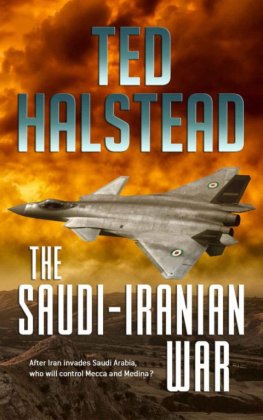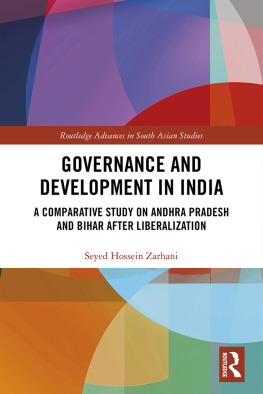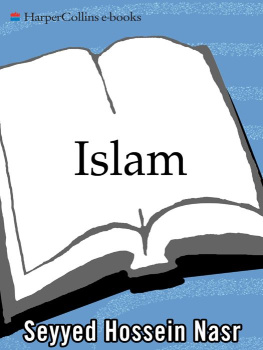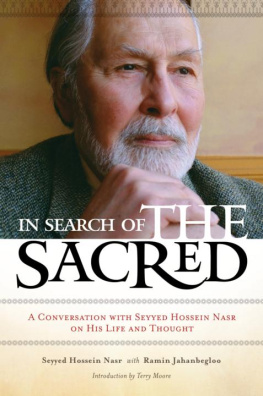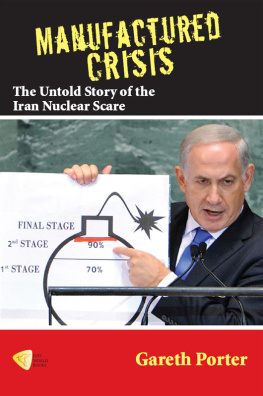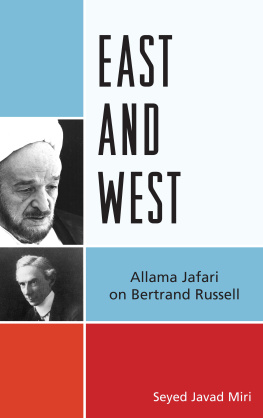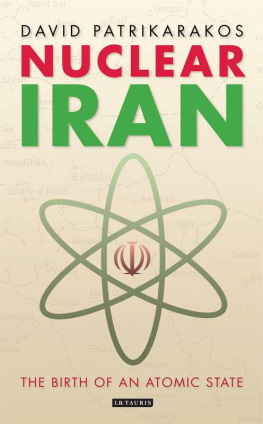Seyed Hossein Mousavian - The Iranian Nuclear Crisis: A Memoir
Here you can read online Seyed Hossein Mousavian - The Iranian Nuclear Crisis: A Memoir full text of the book (entire story) in english for free. Download pdf and epub, get meaning, cover and reviews about this ebook. year: 2012, publisher: Brookings Institution Press, genre: Politics. Description of the work, (preface) as well as reviews are available. Best literature library LitArk.com created for fans of good reading and offers a wide selection of genres:
Romance novel
Science fiction
Adventure
Detective
Science
History
Home and family
Prose
Art
Politics
Computer
Non-fiction
Religion
Business
Children
Humor
Choose a favorite category and find really read worthwhile books. Enjoy immersion in the world of imagination, feel the emotions of the characters or learn something new for yourself, make an fascinating discovery.
- Book:The Iranian Nuclear Crisis: A Memoir
- Author:
- Publisher:Brookings Institution Press
- Genre:
- Year:2012
- Rating:5 / 5
- Favourites:Add to favourites
- Your mark:
- 100
- 1
- 2
- 3
- 4
- 5
The Iranian Nuclear Crisis: A Memoir: summary, description and annotation
We offer to read an annotation, description, summary or preface (depends on what the author of the book "The Iranian Nuclear Crisis: A Memoir" wrote himself). If you haven't found the necessary information about the book — write in the comments, we will try to find it.
The Iranian Nuclear Crisis: A Memoir — read online for free the complete book (whole text) full work
Below is the text of the book, divided by pages. System saving the place of the last page read, allows you to conveniently read the book "The Iranian Nuclear Crisis: A Memoir" online for free, without having to search again every time where you left off. Put a bookmark, and you can go to the page where you finished reading at any time.
Font size:
Interval:
Bookmark:
1779 Massachusetts Avenue, N.W.
Washington, D.C. 20036
202-483-7600, Fax 202-483-1840
www.ceip.org
Hopkins Fulfillment Service
P.O. Box 50370, Baltimore, MD 21211-4370
1-800-537-5487 or 1-410-516-6956
Fax 1-410-516-6998
Composition by Oakland Street Publishing
Printed by United Book Press
Mousavian, Seyyed Hossein, 1967
The Iranian nuclear crisis : a memoir / Seyed Hossein Mousavian.
p. cm.
Includes bibliographical references and index.
ISBN 978-0-87003-268-4 (pbk. : alk. paper) -- ISBN 978-0-87003-267-7 (cloth : alk. paper) 1. Nuclear nonproliferation--Iran. 2. Nuclear weapons--Iran. 3. Iran--Politics and government--1997- 4. Iran--Foreign relations--1997- 5. Mousavian, Seyyed Hossein, 1967- I. Title.
623.4'51190955--dc23
Font size:
Interval:
Bookmark:
Similar books «The Iranian Nuclear Crisis: A Memoir»
Look at similar books to The Iranian Nuclear Crisis: A Memoir. We have selected literature similar in name and meaning in the hope of providing readers with more options to find new, interesting, not yet read works.
Discussion, reviews of the book The Iranian Nuclear Crisis: A Memoir and just readers' own opinions. Leave your comments, write what you think about the work, its meaning or the main characters. Specify what exactly you liked and what you didn't like, and why you think so.

